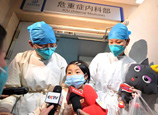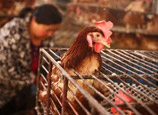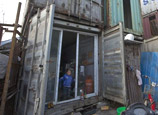
Meanwhile, slower growth in urban fixed-asset investment will ease concerns over China's reliance on investment, a major contributor to the country's economic performance over the past decades.
The first-quarter data showed investment in some industries facing overcapacity had declined, such as investment in construction, coal mining and black metal smelting.
Industries encouraged by the government, such as education, culture and water projects, all enjoyed high investment in the quarter.
Analysts said the trend was in line with the economic restructuring guided by the government.
Investment will continue to rise at a reasonable pace in the long run, but boosting domestic demand remains a complicated process.
The government's new approved projects also illustrate the intention of restructuring its investment, said analysts.
In the first quarter, the National Development and Reform Commission, China's top economic planner, approved 21 construction projects, mostly energy projects involving natural gas, hydro-power and wind-power projects, with a total investment of more than 35 billion yuan in the coming years.
Investment in central government projects rose 11.6 percent in the first quarter, about 7.2 percentage points faster than the two preceding months, while the growth rate of investment in local projects was 0.9 percentage point lower than the first two months, according to the NBS.
Local governments used to unveil aggressive investment plans immediately after new leaders took office, but this year their actions were conservative, partly because local government debt has become such a serious issue, which has curbed local levels of investment, said a government economist, who declined to be named.

















 Photo: Bird flu fears hits poultry industry
Photo: Bird flu fears hits poultry industry


![]()
